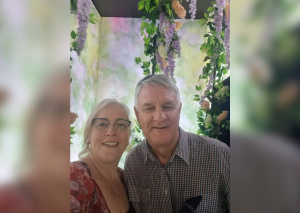By Derika de Villiers
Having a conversation about mental health still remains a challenging exercise for many people. We were brought up in a culture in South Africa where you “had to be seen and not heard” or had to “pull yourself together” or “swallow your tears”. Most South Africans grow up without ever being exposed to ways of looking after their mental health. I am not denouncing this framework, I’m simply stating the dilemma and its effects.
Personal mental health is just as important as physical health. Mental health and physical health are interlinked and have an influence on each other. We won’t think twice about calling the doctor or driving to the pharmacy when our physical well-being is in jeopardy, but it takes weeks or even months before we are willing to attend to our mental health. Why is this the case?
Simply because we never learned how to look after our own mental health. If you feel sad you force your tears away. If you feel angry or anxious you suppress those emotions. Most of us do not have a road map for managing our mental health. And now, as en expat, you are displaced and find yourself in a strange country with a strange language, a totally different way of living and possibly without a support structure or your best friend who used to live right around the corner, always available and willing to listen or to be a shoulder to cry on. At times you will feel very lonely, especially during the Christmas season.
Every person’s road map is unique, formed by their own unique background. It is a basis you have to build on. This road map gives you the information on which route to take, when to stop, to rest and when to take an alternative road.
Your emotions can be seen as indicators that give you information; which experiences are good for you and which experiences are detrimental to your mental health. Emotions such as joy, happiness and gratitude are nice to experience and these are emotions a person would like to experience often. Other emotions such as sadness, anxiety and despair are harder when you experience them. Do not ignore or suppress these emotions, but rather regard them as warning signs. Signs that you need to focus on your mental health and identify where these emotions originate from. Do they come from your thoughts (your internal dialogue) or from the impact your environment has? When you ignore the warning signs they will just present louder and clearer than before. This is where you have to be able to take charge of your feelings.
You also don’t need to travel alone. If you are far from family or friends, or don’t yet have a support system, you can always contact a psychologist or another resource at your disposal. Look for a psychologist who speaks your language, that way you can express yourself more clearly and provide the psychologist with the right context. There are many Afrikaans speaking psychologists such as myself who work abroad. Most South African psychologists also offer online therapy.
Then I also need to state this: Therapy is not the best route for every person. As a psychologist I can tell you that therapy is not the only solution in teaching you how to manage your mental health. It is however one route on the road map and a meaningful and challenging way that can help you navigate your mental health until it reaches the levels it should be at.
Most people do not realise they have so much power to improve and manage their mental health themselves. One doesn’t know where to start and which way will work the best. I worked with a team of experts and we identified this challenge and developed an app that can help you to create your own unique roadmap. We named the app Hey Happy and it is available on Google Play as well as on the Apple Store.
The aim of the app is to expose you to 90 activities that will influence your mood positively. We looked at research studies and developed it into activities where you can learn more about your mood and develop a toolbox for when you need to manage your mental health.
Learn more about yourself. Learn what works and what doesn’t. Learn what you like and what is important to you. Learn how to effectively build and maintain relationships. Your roadmap will have to include all of these things.
Mental health is complex, and you need to pay attention to it, no matter where you may find yourself.

Written by Derika de Villiers, clinical psychologist in Amsterdam, the Netherlands
www.derikapsychologist.com
Links to the Hey Happy app:




















